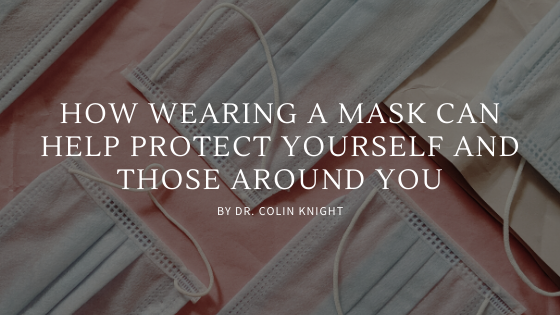One prominent aspect of the new normal is the prevalence of face masks in public spaces. Based on CDC and WHO guidelines, individuals are encouraged to wear masks for the sake of preventing the spread of COVID-19. While medical grade N-95 masks have proven to be the most effective, those are typically reserved for frontline workers in medical facilities; everyone else has taken to wearing surgical masks or homemade variants from cloth, scarves, or bandanas.
The role of these masks is to help keep everyone safe and healthy, and while the masks cannot guarantee full protection from the coronavirus, most medical professionals agree that it is far safer to wear the masks than to go without.
What some individuals may not realize is that wearing a face mask is more for the benefit of the community than the individual wearing the mask; this is why it is encouraged that everyone wears a mask in public (save for those with medical conditions that prevent them from doing so). When wearing a mask, the chances of contracting the novel virus through airborne particles (aerosols) is somewhat diminished, but the main benefit of wearing a mask is that it could significantly reduce the spread for individuals who have contracted the virus.
In short, masks are more effective at preventing the spread because they can trap infected particles before they can be released into open air.
A major concern with the coronavirus is that many individuals have been asymptomatic; that means that even after contracting the virus they do not experience the notable symptoms, and in some cases, they may not have any symptoms at all. Asymptomatic carriers may easily spread the virus to others because they do not know they have been infected; if they do not isolate themselves (because they feel they have no reason to) and do not wear masks in public, the chances of spreading the virus becomes incredibly high. Wearing masks, then, can prevent asymptomatic carriers from unknowingly infecting others, and therefore, when everyone properly wears a mask in public, the chances of spreading the virus becomes slim.
For those who have been infected, demonstrated symptoms, and/or tested positive for COVID-19, the best course of action to avoid further spread is to self-isolate for 14 calendar days, which is the typical length of time individuals are affected.
